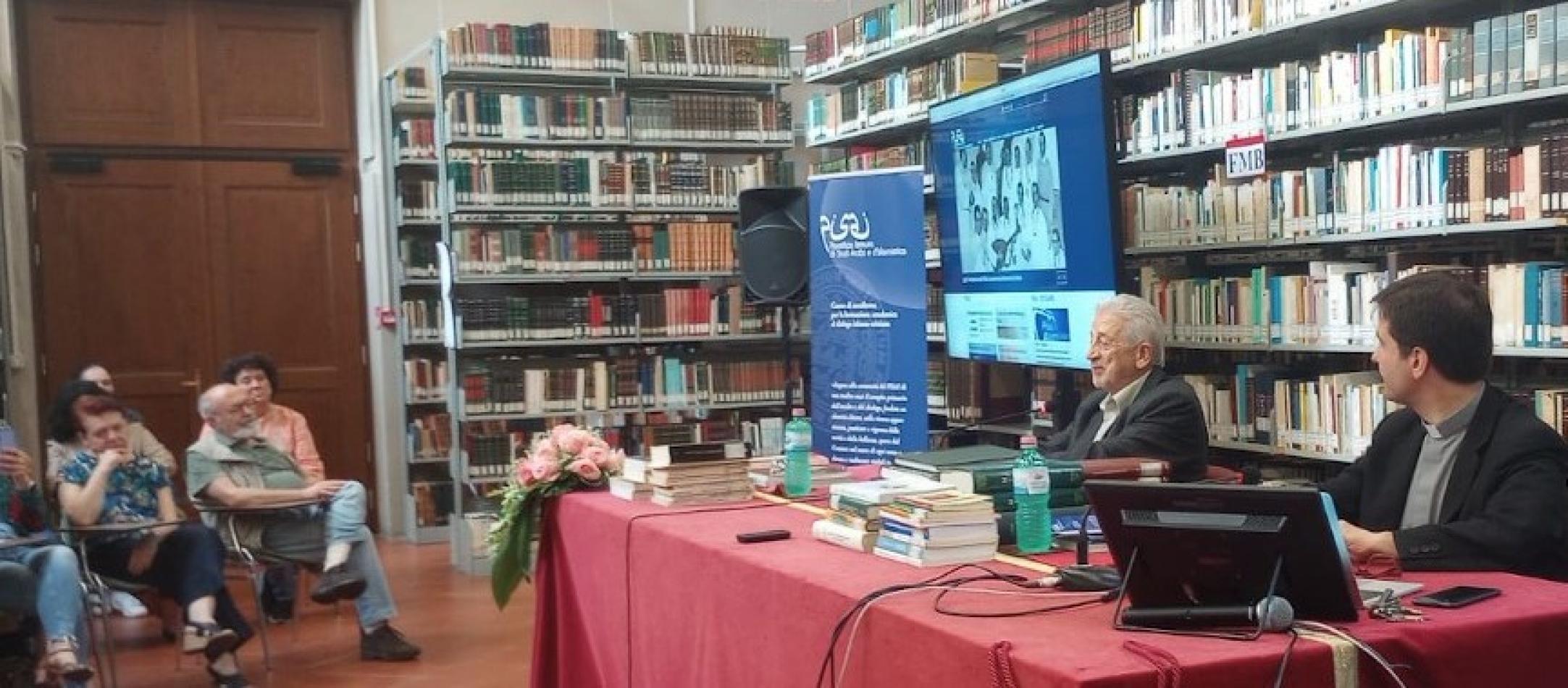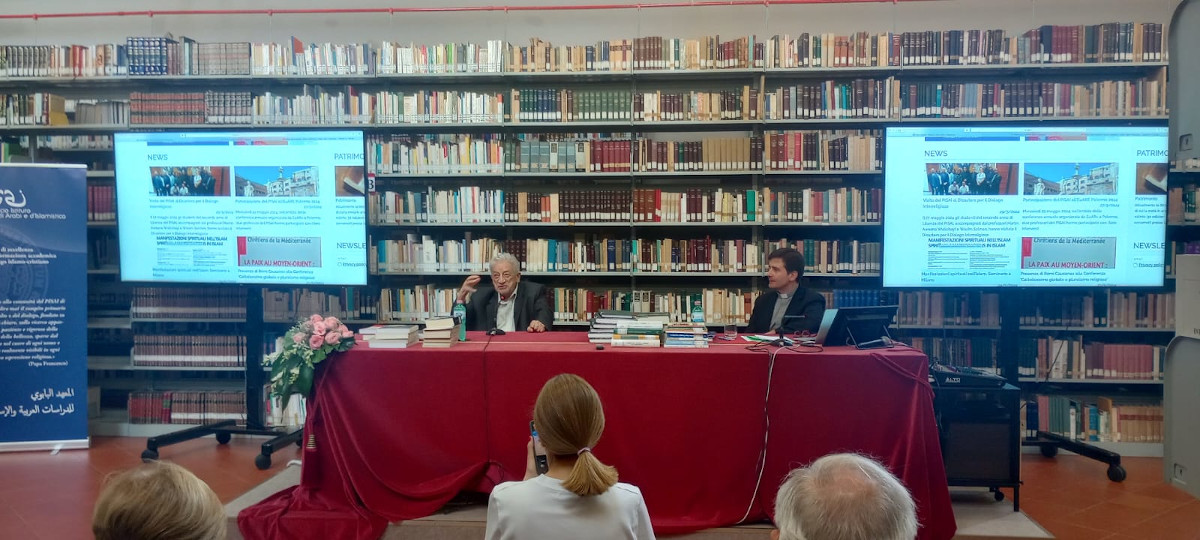Daniel Comboni
Comboni Missionaries
Institutional area
Other links
Newsletter
Wednesday, June 12, 2024
On Friday, 31st May 2024, Father Giuseppe Scattolin gave a lecture at the Pontifical Institute for Arabic and Islamic Studies (PISAI), during the closing ceremony of the 2023-2024 academic year. Father Scattolin is professor emeritus of the Institute and has worked for over 40 years in the Arab world, particularly in Lebanon, Egypt and Sudan.
The title of his talk, suggested to him by the PISAI itself, was therefore obvious: “My personal experience as a witness of Christ in a world dominated by Islam”. A world that he knows very well and where also he has received numerous awards for his rich and much appreciated contributions, particularly on Sufi spirituality and literature, which represents the most mystical current of Islam.
Father Scattolin began by expressing his heartfelt thanks to his Comboni Institute for allowing him to be educated according to perhaps the most open educational system of his time, represented by the so-called ‘classical studies’ (ancient history, Latin and Greek languages and literatures; philosophy and theology courses) that helped him develop an open mind that later proved to be fundamental in his ‘journey’ to and within the Islamic world.
He also praised the Second Vatican Council of the Catholic Church, which served as an invitation and encouragement to embrace modernity and diversity without prejudice.
In this regard, he insistently emphasised that ‘diversity’ is a great resource which, if well tapped in, can enrich our different identities. In terms of ‘diversity in dialogue’, however, he made it clear that the encounter and dialogue between Christians and followers of Islam requires a sincere need for conversion on both sides. To be honest, we have to recognise that each person harbours within him or herself some kind of violence that could erupt at any moment and, therefore, must be acknowledged and denounced with courage.
He went on to state that true faith must necessarily pass through reason – a reason (mind) that is sound and purified of all ulterior motives. Otherwise, faith can only degenerate into fideism, or fanaticism, or extremism. The starting point of any fruitful dialogue is to shed courageously the mask of ‘preconceived knowledge of the other’, which, in many cases, prevents us from knowing the other in depth.
Inspiring was the part of Father Scattolin’s speech in which he reiterated that true dialogue includes the search for the five fundamental pillars present in every human culture and religion. The expression ‘five pillars’ surprised quite a few. Everyone present was aware of the ‘five pillars’ of Islam: the testimony of faith (shahada), prayer (salat), almsgiving (zakat), fasting (sawm) and pilgrimage (hajj). For Father Scatolin, the five fundamental pillars of every culture are: Mercy, Love, Truth, Justice and Peace.
Concluding his lectio, Father Giuseppe urged all PISAI staff and students to continue to be “sentinels of encounter and dialogue” at different levels.
(Father Brighton Multiply Zimba, mccj)





